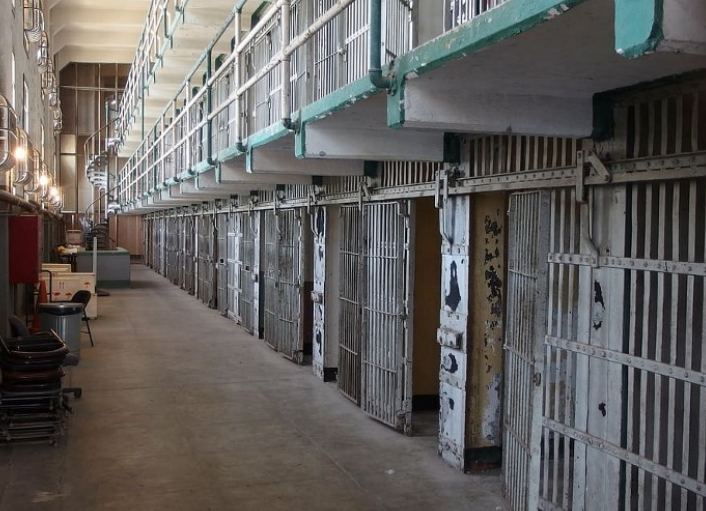Ending Extreme Sentencing: The Road Towards Abolition
"The same way that modern policing has consistently failed us, our prison system is a massive failure."

Written by Rosie Friedland, excerpts from the following feature, "Ending Extreme Sentencing: The Road Towards Abolition," appear on the AWARE-LA website.
*****
Recent demands to defund the police and shift resources away from law enforcement to community-led alternatives have gained steam across the country. We are witnessing a contemporary civil rights movement that will fundamentally alter the role and landscape of policing in the United States. What we are not seeing, however, is similar momentum to defund and abolish prisons. Police are the first point of contact for almost everyone who is impacted by the criminal legal system, but there are many other actors — e.g., district attorneys and judges — who perpetuate systemic racism as well as other forms of oppression such as classism, sexual violence, and transphobia.
The same way that modern policing has consistently failed us, our prison system is a massive failure. If it were working well, we would be the safest nation in the history of civilization considering the scale of mass incarceration. Perversely, crime rates in California are at historic lows, yet incarceration rates remain staggeringly high (a 900% increase since 1978). One factor that contributes to our inflated incarceration rate is extreme sentencing — an inhumanely lengthy prison sentence. As abolitionists, we call for an end to this harmful practice.
The Equal Justice Initiative highlights several examples of extreme punishment, including three strikes legislation, drug offenses, and virtual life sentences (a prison sentence that exceeds one’s normal lifespan). Abolitionists see ending these types of sentencing as a form of harm reduction on the way to abolishing the entire criminal legal system. When it comes to legislation, abolitionists only work to further that which will ultimately limit the size and scope of the criminal legal system. As abolitionists, it is our duty to shine a light on the deep harms inflicted by the criminal legal system. We seek to bring about a crisis of legitimacy for the entire criminal legal system. Police abolition and prison abolition are inextricably intertwined; dismantling the entire criminal legal system helps us build a world free from state-sanctioned violence and create a new system rooted in healing, accountability, and transformative justice.
When we call for prison abolition, we not only call for the dismantling of prisons in a vacuum, but dismantling all systems that contribute to seeing prisons as “solutions” — all facets of the massive criminal legal system that condemns so many people to life in prison, including District Attorneys’ offices, state surveillance, Sheriffs’ Departments, Probation, and school police. If we allocate resources to prevent and address the root causes of harm, which are inequality, systemic disinvestment, and trauma, we can address these issues in our communities without using a punitive approach, while simultaneously abolishing police and prisons in our society. One piece of this complex puzzle is the abolition of extreme sentences. No one should be punished with life (or a large portion of one’s life) behind bars, and the end of this inhumane process would be part of the full abolition of this harmful system that we are working towards.
*****
You can read the full feature, "Ending Extreme Sentencing: The Road Towards Abolition" at the AWARE-LA website. AWARE (Alliance of White Anti-Racists Everywhere) LA is an organization that aims to take responsibility for learning about racism, white privilege, and how to challenge it as white people and dismantle white supremacy.










